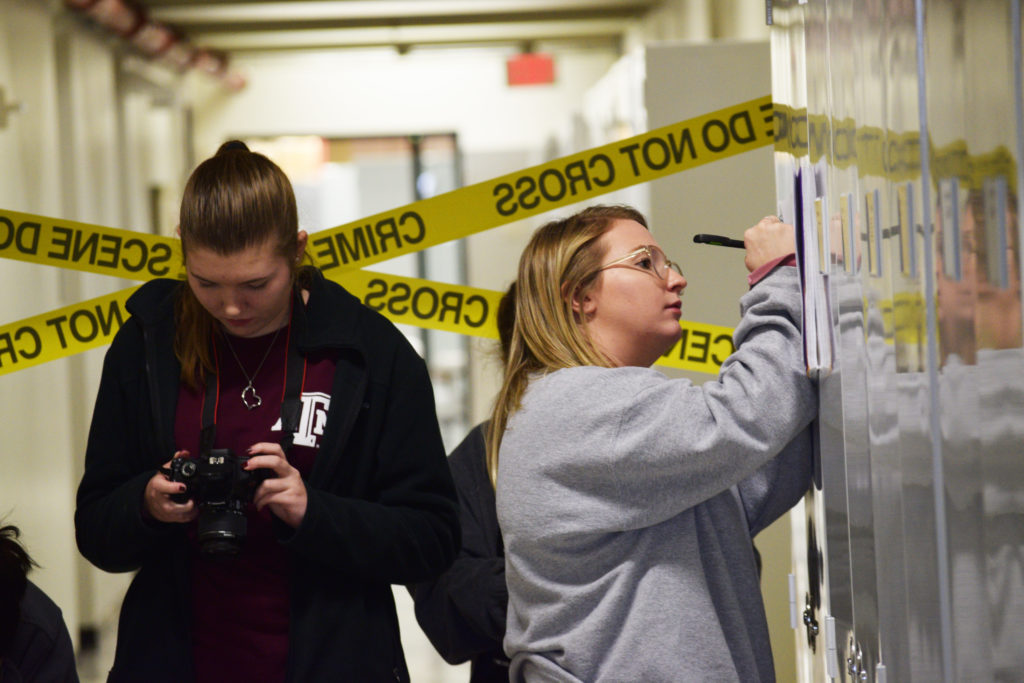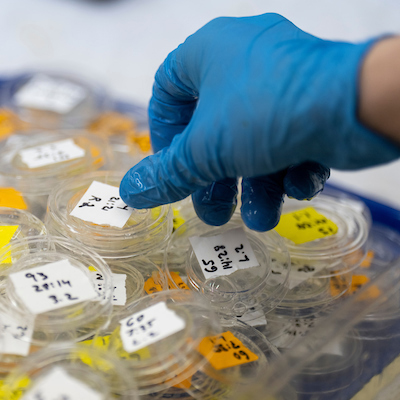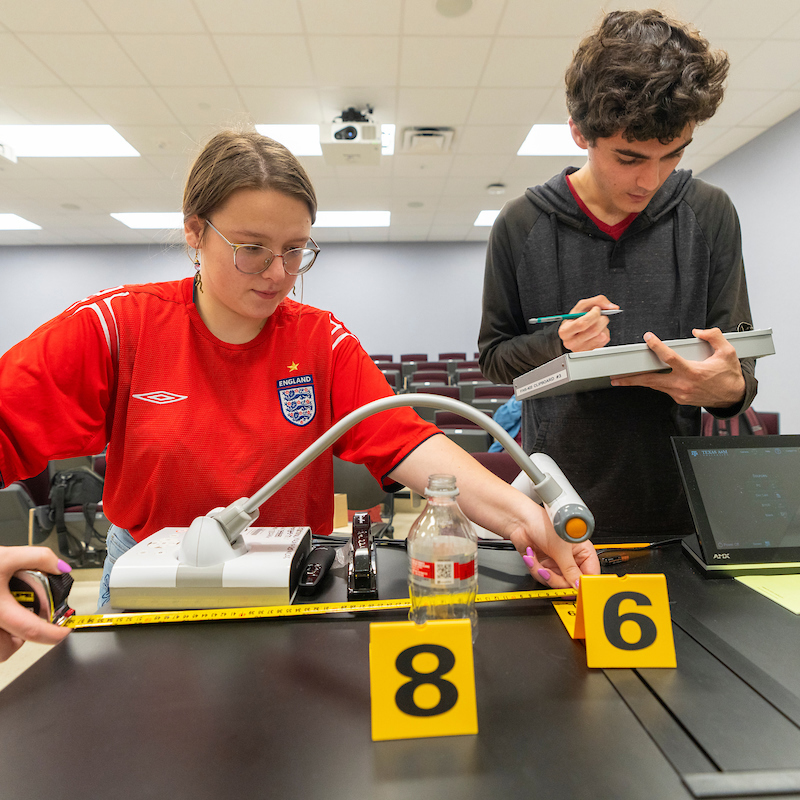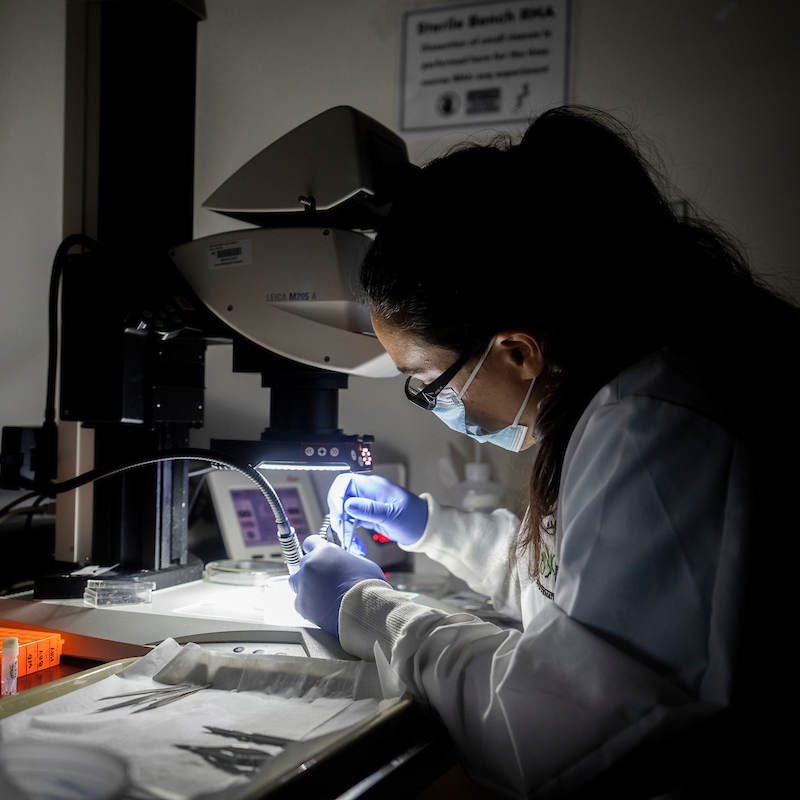
B.S. Forensic and Investigative Sciences
Students in this major will learn how to use the life sciences, from DNA to ecology, to analyze crime scene evidence or solve mysteries in industrial, regulatory or medical settings. This major is excellent for students seeking to gain entry into careers that deal with the collection, preservation, processing and use of evidentiary information to solve complex problems. Forensic and investigative scientists rely upon state-of-the-art scientific discoveries and technologies as tools to answer critical questions in a variety of settings. Students in this major can choose an area of emphasis in either:
- Science (FEPAC Accredited)
- Pre-Law (Non-FEPAC Accredited)
Our bachelor’s degree program is one of only two in the state of Texas that is nationally accredited by the Forensic Science Education Programs Accreditation Commission.
Admissions
We’re committed to providing students opportunities to get a well-rounded education that prepares them to become leaders in their professions and in their communities. That means a focus on service as well as academics, and experience tackling real-world problems alongside some of the world’s top professors.
Applications for the B.S. Forensic and Investigative Sciences degree are processed through the main admissions portal at Texas A&M University. Choose your path below to learn more about the admissions process and requirements.

Ranked #1 Best Forensic Science Program by Bachelor’s Degree Center
Forensic and Investigative Sciences Program Details
Courses in this degree include chemistry, physics, statistical methods, crime scene investigation, forensic soil science, principles of law, case studies in problem solving and applied forensic entomology, among others. Students pursuing this degree can choose to emphasize in Science (FEPAC Accredited) or Pre-Law (Non-FEPAC Accredited).
- Degree: B.S. Forensic and Investigative Sciences, with emphasis
- Credit Hours: 120 total credit hours
- View course descriptions in the Undergraduate Catalog
- Undergraduate Honors Program
Science Emphasis Track (FEPAC Accredited)

This track is ideal for students seeking careers that deal with the collection, preservation, processing and use of evidentiary information to solve problems. Graduates work in quality assurance laboratories, homeland security and investigative services at local, state and national levels.
Pre-Law Emphasis Track

This track operates at the crossroads of science and the legal profession, where strong research skills, analytical and problem-solving skills, and critical reading abilities are pivotal. Graduates practice law in careers where scientific data interpretation and analysis play a critical role in the judicial process.
Internships and Research Opportunities

Both emphasis tracks in the forensic and investigative sciences program provide students with the opportunity to participate in an internship and research project for course credit. These experiences provide students with dedicated, hands-on experience that will provide them with skills sought after by employers in the workforce.
Certain requirements must be met in order to receive credit. Students must follow the guidelines below and work with their advisor to pursue an internship or research project.
Career Options in Forensic and Investigative Science
Graduates of the Forensic and Investigative Sciences program are competitive for employment opportunities in quality assurance laboratories, homeland security and investigative services at local, state and national levels. Graduates will also be well prepared for success post-graduate studies or professional schools including medicine, law and veterinary medicine.
The American Academy of Forensic Sciences maintains a Job Board for forensic science professionals. Students can also explore prospective careers in this major through the Texas A&M Career Center.
| Job Title | Description | Average Salary |
| Crime Scene Investigator | Work with law enforcement to identify, isolate and secure the crime scene and preserve, collect and record evidence at crime scenes | $48,725 |
| FBI Special Agent | Conduct surveillance, gather and analyze data, monitor online activities, collect evidence | $73,322 |
| Forensic Nurse | Work with doctors on helping to identify and treat victims, preserving evidence, and working with law enforcement in solving crimes | $42,000 |
| Lawyer | Advise and represent clients in legal matters. They counsel clients, perform legal research, prepare legal documents and represent clients in criminal and civil court proceedings. | $116,080 |
Forensic and Investigative Sciences Program News

Camp youth explore forensics and entomology
Middle and high school students from across the U.S. got a hands-on introduction to forensics, insects – and college life – during two immersive Youth Adventure Program, YAP, camps hosted by the Texas A&M Department of Entomology. Lead by department faculty and graduate students, a camp focused on forensic investigative sciences while another covered general entomology. The experiences introduced students to real-world applications of biology, chemistry, geometry and more – using fake blood, forensic puzzles and live insects to do it.